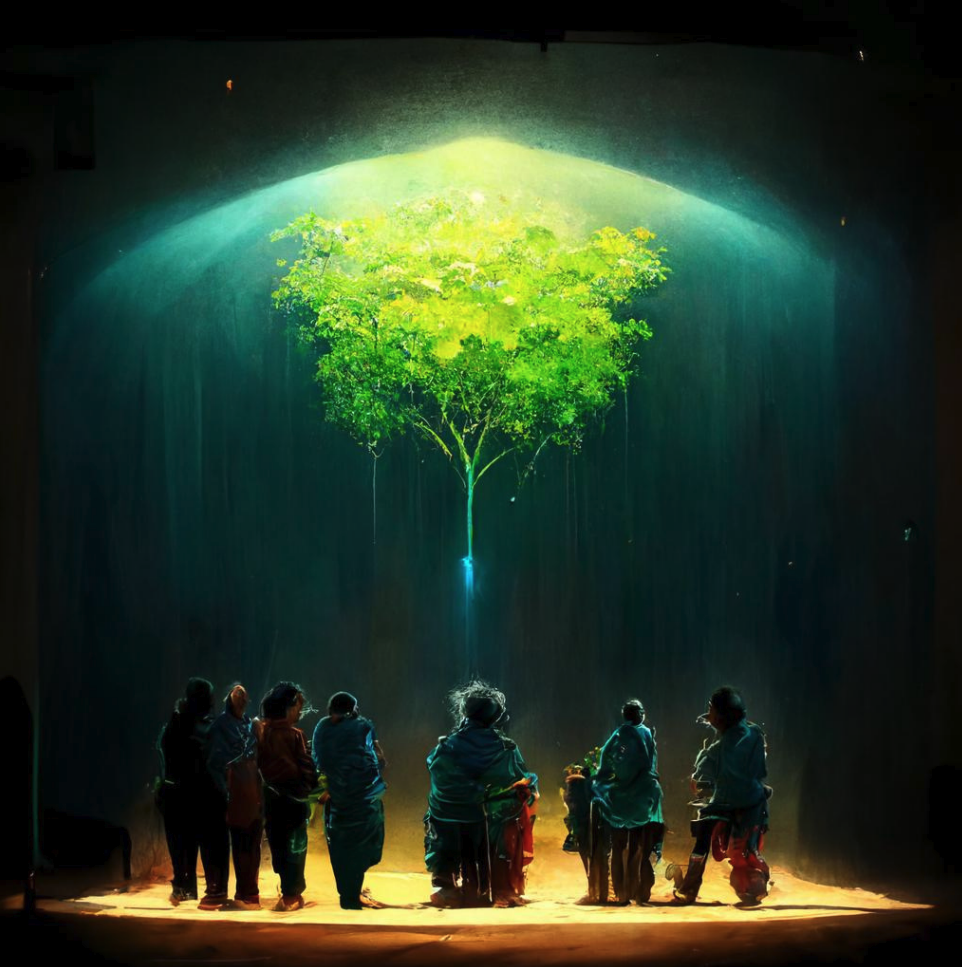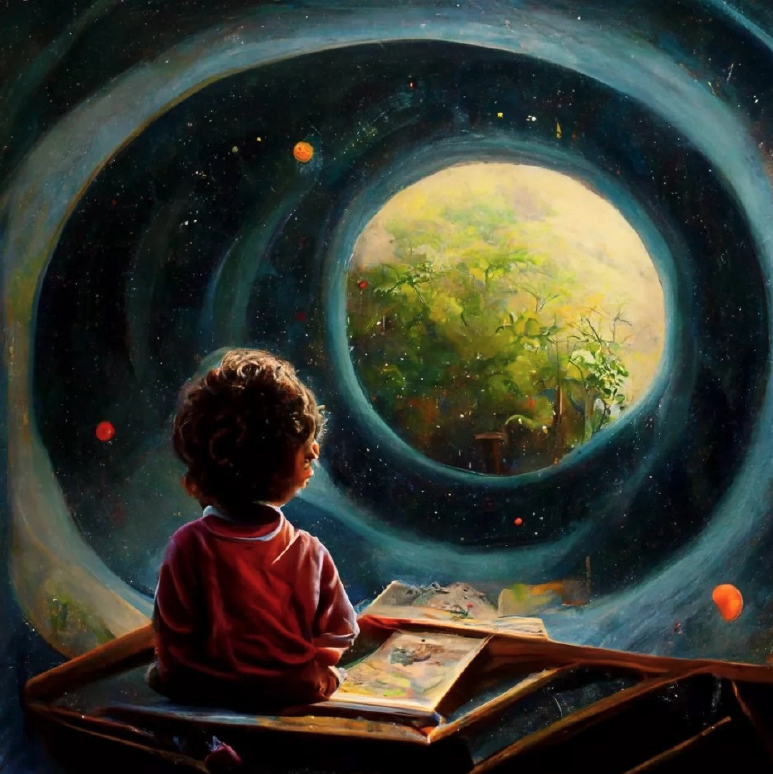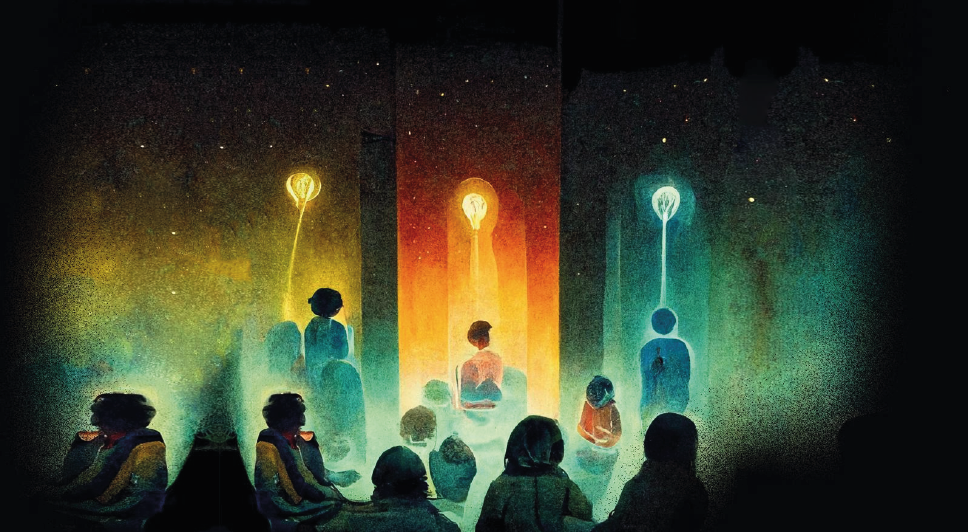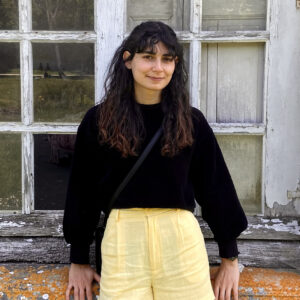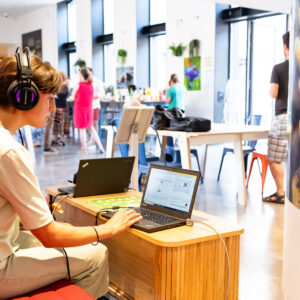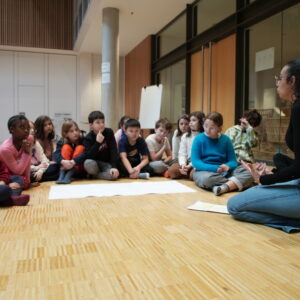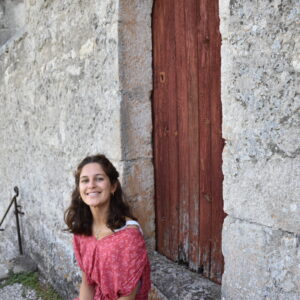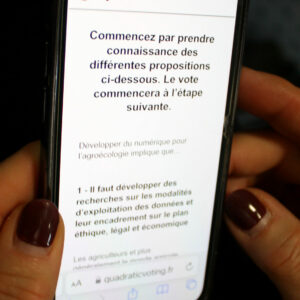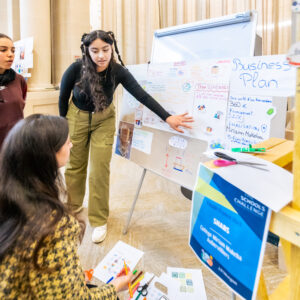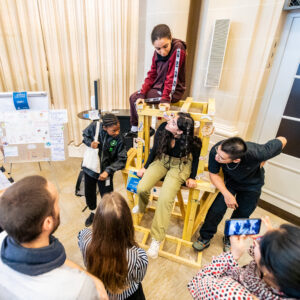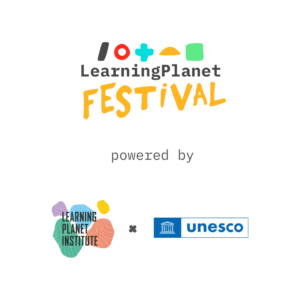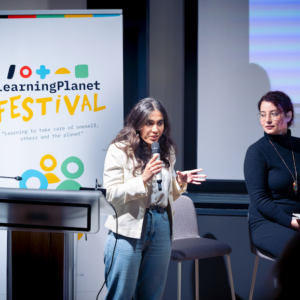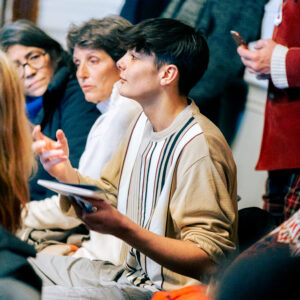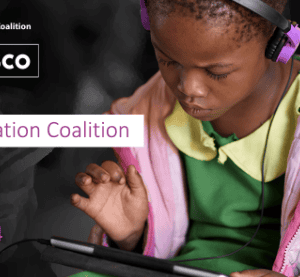On 28 March 2023, the UNESCO headquarters in Paris played host to over 200 members of the Global Education Coalition (GEC) as they celebrated their three-year anniversary with their first-ever in-person meeting. The GEC is a multi-sectoral coalition that brings together various organisations with diverse backgrounds, resources, expertise, and experiences, all working towards achieving quality education for all. Among the members of this global community is the Learning Planet Institute, which gave the youth a significant role to play throughout the day. Let’s meet Lara Assadourian, a master’s student in “Learning Sciences” and Edward Stevenette, Education Project Manager at the Learning Planet Institute.
Why did you get involved in this day at UNESCO?
Ed: UNESCO co-launched the international Alliance with the Learning Planet Institute in 2020, where I a work as an Education Project Manager. Our role during the day was to bring the perspective of youth and make the event more interactive.
Lara: UNESCO was looking to have more youth voices represented at the meeting, and they approached us for two things: to lead an icebreaker activity and to engage with the participants throughout the day. There were seven current students and some alumni from the Learning Planet Institute involved in the event.
Can you give us more details about what happened during the day and who participated?
Lara: Participants included the UNESCO team, business leaders, representatives from state ministries (such as the Minister for Education from Indonesia), foundations and lots of education think tank leaders. They were not really representing the youth, and that’s why we were there.
We began the day with an interactive ice breaker, which allowed partners to connect and reflect on being a Learning Planetizen.
Can you explain what the icebreaker activity involved?
Lara: We created six unique cards on Planetizenship, using artificial intelligence art. Each card featured an image and text from the Learning Planet Manifesto. The participants were grouped and assigned a card to discuss and share their ideas about what it means to be a Learning Planetizen. This activity helped to establish a shared understanding of what a Planetizen is and what it entails.
Lara: When asked “What is a Learning Planetizen?” responses we received were « someone who has empathy« , « who shares« , « who strives for a sustainable future« , and « who has respect for the planet, who loves people and nature« . As for the question on who inspires them as a Learning Planetizen, we had Malala Yousafzai, Greta Thunberg, Runa Khan, among others.
Ed: When asked about how they are working to be a Learning Planetizen and what more they could do, some of the responses were “I work in education supporting others to develop skills”, “I engage with a global learning community” or “I identify ‘visions’ and see ‘solutions’”.
Lara: We concluded the session by sharing all of these ideas and emphasising that they should not just stay in the room but should be shared with partners and communities! Although it took some time to explain the concept, people eventually understood. They were like, « Oh, wait, we relate to that”. The group grew bigger and bigger, and we ended up with 80 to 90 people in the room. Towards the end, people were discussing together the idea of moving beyond borders and focusing on what unites us. By including both the private and public sectors, I really feel like we can make education more accessible worldwide.
Was the afternoon was more about the Global Education Projects?
Lara: There were three tracks: teacher training; global learning education projects and the link between digital education and gender. One of the core sessions was dedicated to greening education, focusing on UNESCO’s Greening Education Partnership.
Ed: What made it even more exciting was the presence of young members of Fridays for Future who were really engaged and passionate about the topic. It was great to see the next generation of leaders and activists involved in these discussions and initiatives.
What do we mean about “greening education” and how is UNESCO involved in this process?
Ed: UNESCO’s Greening Education Partnership (GEP) aims to educate about climate change and prepare them to tackle it, through four pillars : 1) greening schools, 2) greening learning, 3) greening capacity and readiness and 4) greening communities. François Taddei, President of the Learning Planet Institute, participated in the discussion, about this initiative, where he talked about the Teachers for the Planet Programme co-led by the Learning Planet Institute, Aga Khan Foundation and Teach For All.
Can you tell us more about the Teachers for the Planet Programme co-led by the Learning Planet Institute?
Ed: Teachers for the Planet is a coalition that was launched in January 2023 with the goal of putting teachers and education leaders at the forefront of the educational response to the climate crisis. Our aim is to bring together various initiatives from around the world that can help teachers educate their students about climate change.
Our main objective is to operationalize the four pillars of the Greening Education Partnership by COP28. This means mobilising a global community of more than 1,000 climate and education professionals across ten or more countries to develop over 100 concrete solutions for teachers and education leaders. Over the next few months, we will be building a community and inspiring action on climate education.
Can you share your overall impression of the day and what you learned from it?
Lara: I believe that youth need to have more representation at these kinds of major events. They are the ones who will bring about the change we need. I had the opportunity to talk to some of the headliners which was a first for me. I felt like everyone had the initiative in themselves: there are a lot of people who can come together and fill in the gaps.
Ed: It was very fulfilling to be able to contribute in a meaningful way to the day, particularly by bringing the voices of youth to the table and encouraging interactive, imaginative and creative conversations. The participants and UNESCO were very enthusiastic. So, we can only go further and further down this road! That was the real desire of the team in terms of transforming education and access to education. It was very positive.
How do you see the future?
Ed: We have initiated regular conversations with various public and private actors in the education field, as well as young people. Our aim is to gather ideas and practical solutions by building networks and cross-pollinating. Our members can contribute to the initiative with on-the-ground projects, which leads to a strong symbiosis. Moving forward, we need to focus on operationalising our work in a meaningful way. We are excited to collaborate more with UNESCO and have interactivity, creative conversations, and new narratives for the transformation of education.
Lara: Arts and dreams also have their role to play in this exciting conversation!
LEARN MORE
👉 Join the Teachers for the Planet programme!
👉 Learn more about the UNESCO’s Global Education Coalition (GEC)
👉 Learn more about UNESCO Greening Education Partnerships
ABOUT OUR SPEAKERS
Lara Assadourian is currently completing a AIRE master’s degree « Learning Sciences » at the Learning Planet Institute. Through this programme, she discovered many new projects and ideas, the most important to her being « Planetizens ». She believes we are all Planetizens, citizens of the planet, and that by working together, we can finally establish a love for our planet! Today, she is working on a project platform – like a museum – that tries to encourage everyone, as Planetizens, to create an art form.
Edward Stevenette is responsible for developing several of the Learning Planet Circles at the Learning Planet Institute. They bring together like-minded community members around a shared issue to collaborate for better impact. Circles launched include the Youth Empowerment Circle, where we support around 200 young fellows, Transitions in Higher Education, and Imagination in the Classroom. These are spaces dedicated to building a Learning Planet supporting the development of young game-changers by sharing an understanding of critical issues in education and seeding collaborative projects for impact.
Learning Planet Circles are part of the LearningPlanet Alliance – a community of changemakers and institutions learning to take care of themselves, others, and the planet, jointly launched by the Learning Planet Institute and UNESCO in 2020.
This publication is part of the UNESCO Chair in Learning Sciences, established between UNESCO and Université Paris Cité, in partnership with the Learning Planet Institute. Views and opinions expressed are however those of the author(s) only and do not necessarily reflect those of the UNESCO. The UNESCO can not be held responsible for them.
Interview by Marie Ollivier.
A big thank you to Laura and Edward.
